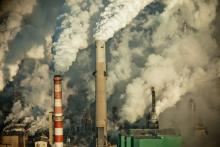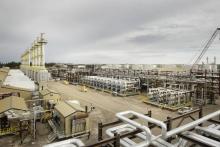Death and decay are winning in Canada's vast managed forest lands. And this victory is unleashing a rising flood of climate pollution. Put simply, our forests are dying and being cut down faster than they can grow back.
In 2018, the flood of CO2 pouring out of them reached record levels, at nearly a quarter billion tonnes of CO2 in a single year. That's more than Canada's once biggest climate pollution source — the oil and gas sector — emitted that year.








